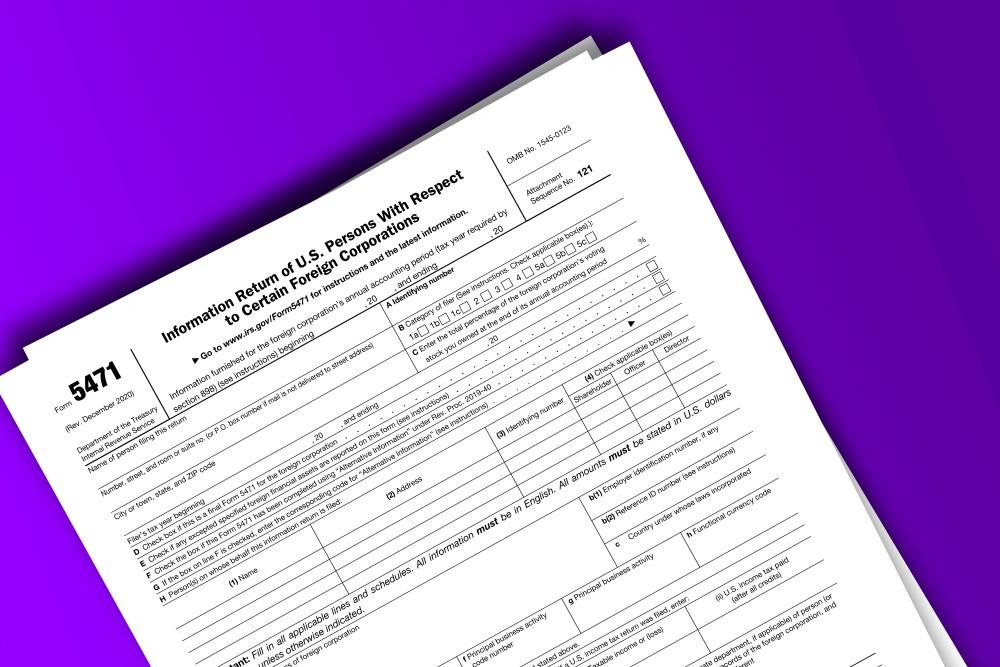An extension worth seven figures? For clients with undisclosed offshore accounts, filing an extension can mean much more than simply buying time.

With April 15th now less than one week away, taxpayers and their CPAs are busy gathering any additional information necessary to complete their returns on time. In some cases, that information can't be realistically obtained in time to make sure the return will be filed correctly, so thousands of taxpayers will (or already have) submit Form 4868, which grants an automatic extension of the deadline to file the tax return for 6 months. For taxpayers with foreign bank accounts that have yet to be disclosed to the IRS via the normal FBAR filing requirement or, alternatively, through one of the IRS' current voluntary disclosure programs, filing the extension can prove much more valuable than simply allowing additional time.For background purposes, under the Offshore Voluntary Disclosure Program ("OVDP") administered by the IRS' Criminal Investigation Division, U.S. taxpayers have had the opportunity to avoid the severe statutory civil and criminal penalties applicable to a failure to annually file the required FBAR forms required for such accounts since the original program was announced in March, 2009. The program requires taxpayers to provide their previously-filed original (and if applicable, amended) tax returns, amended tax returns reporting any previously unreported foreign income over the preceding 8-year period, as well as FBARs for each account that the taxpayer(s) failed to disclose during that same period. As part of the disclosure process, participants are required to remit any unpaid tax, along with the statutory interest required for late payment and a 20% accuracy-related penalty (based on the delinquent tax liability) imposed under IRC § 6662(a). Any late filing and late payment penalties under I.R.C. § 6651 are also required to be paid. Further, participants are required to pay (in lieu of all other penalties that may otherwise apply to any undisclosed foreign assets and entities) an offshore penalty equal to 27.5% of the highest aggregate balance of any undisclosed foreign accounts as well as the value of any other foreign assets required to disclosed during the period covered by the voluntary disclosure.A key consideration in evaluating any case involving undisclosed offshore accounts and offshore non-reporting of income is determining what constitutes "the period covered by the voluntary disclosure." The OVDP process itself is a purely administrative program in its origin, and thus, there is no statutory or regulatory authority to refer to when attempting to answer this question. Practitioners are instead required to look to a series of Frequently Asked Questions published by the IRS that lay out the requirements, procedures, and rules governing it. Under FAQ #9 of the most recent version of FAQs published in 2014, the voluntary disclosure period is said to include "the most recent eight tax years for which the due date has already passed." Such due date includes any proper extensions thereof. Thus, participants who want to come within the OVDP's "protective blanket" have an opportunity to effectively elect the disclosure period that the past-due tax, tax penalties, and offshore penalty will apply to.
[***Note: while the other voluntary disclosure programs other than OVDP (i.e. the streamlined programs for both foreign and domestic U.S. taxpayers) also have a similar basis for determining the disclosure period within them, they're different in their application and thus, outside the scope of this discussion.***]
For a simple example, let's say Client A - a U.S. taxpayer and native Dutchman - has multiple foreign bank accounts in the Netherlands currently in excess of $6 million USD, and those accounts have been held by Client A for well over a decade. When asked why these accounts were never declared nor the income reported in previous years, Client A states unequivocally that he doesn't believe he should have to report income from earnings outside the United States, and that having to declare ownership of foreign bank accounts to U.S. taxing authorities is "complete [was that Dutch?]." After a careful analysis of all the foreign account statements, the unreported interest income from such accounts, and Client A's personal view of U.S. policy on foreign account reporting and its worldwide tax system, it's clear that the OVDP (because of its non-discriminating nature toward taxpayers that would otherwise likely be deemed to have been "willful" in their non-reporting and non-disclosure) is Client A's best option. It's April 9th, and the 2014 tax return for Client A is due in a week. In 2014, Client A sold a family vacation home he inherited 15 years ago for the equivalent of $4 million USD, the proceeds from which he deposited directly into one of those foreign accounts, raising the total balance from a prior high of approximately $2 million USD to the previously-mentioned $6 million currently held. Based on FAQ #9's language stating that the voluntary disclosure period constitutes the most recent 8 tax years for which (including proper extensions) the due date has passed, Client A has an important choice to make. If Client A submits the voluntary disclosure by April 15th, the disclosure period will include the years 2006-2013. That's great news, considering the offshore penalty of 27.5% under that scenario will be applied to a high aggregate balance of $2 million rather $6 million (a difference of $1.1 million in that penalty alone ($550,000 vs. $1,650,000)). However, due to the amount of additional work that still has to be done in order to properly submit the disclosure, doing so less than one week from now might be impossible. By filing the extension, Client A has bought more time in order to obtain and produce all the necessary information and documentation required, and still take advantage of the much more favorable penalty structure based on the selected disclosure period.But wait a minute. What if in the course of assembling the rest of the information in early May, it comes to light that in 2006, Client A actually had another unreported foreign account that he'd forgotten about? Upon closer inspection, this account was jointly held by Client A and his father, who lived in Amsterdam and never set foot in the United States. The statements reflect that in October of 2006, the account had a high balance the equivalent of $8 million USD. In December of that year, Client A's father passed away, and Client A inherited the funds within the account by survivorship. Client A's mother and sister both suffer from a debilitating disease that requires around-the-clock care, and Client A knew that his father had really intended those funds to be used to take care of his mother and sister. Thus, Client A decided that all the funds should be placed in an irrevocable Dutch trust (the "Mother-Sister Trust") to ensure their care for the rest of their lives (they were accustomed to very, very nice things). He also decided that his uncle should serve as Trustee because he lived nearby in Amsterdam, and being close would make handling those duties much easier. The funds were transferred to another Dutch account controlled by the new Mother-Sister Trust on December 31, 2006, and Client A no longer had any access to the funds nor any control or beneficial interest in the Mother-Sister Trust after that date. During 2006, the high balance in all of Client A's other foreign accounts was $1 million USD. If the voluntary disclosure period is still 2006-2013, all the sudden the offshore penalty calculation results in a bill of $2.475 million - a jump of $1.925 million!Is Client A stuck? Not necessarily. Remember, the disclosure period - and thus, the basis for penalty calculation - is based upon tax years for which the tax return due date, including extensions, has passed. Because the extension was filed, Client A can wait until the extended due date passes in mid-October before submitting the voluntary disclosure. Under that option, the disclosure period now includes tax years 2007-2014 and an offshore penalty of $1.65 million that now looks pretty good relatively speaking.It's important to note this latter path is wrought with a little more uncertainty. That's because with the implementation of the Foreign Account Tax Compliance Act ("FATCA") in July of last year and the ongoing disclosure by foreign financial institutions of their U.S. account holders' information to the IRS pursuant thereto, the risk of U.S. taxpayers' noncompliance being detected before they come forward - and thus eliminating them from the voluntary disclosure process altogether - grows greater by the day. Additionally, taxpayers must be aware that the FBAR filing deadline (June 30th for the most recently completed year) might fall in the middle of their preparation for submitting their disclosure, so care must be taken to make sure that the taxpayer is currently compliant, especially where the covered period within the OVDP context won't include that most recent year (i.e. 2006-2013 vs. 2007-2014 in the example above).If you have a client with an overseas account that hasn't been reported to the IRS, it's likely that there won't ever be a better time to come forward than right now. Please contact us for more information on how we can assist you or your clients in potentially taking advantage of one of these programs, or otherwise planning how to best proceed forward in circumstances like these.





